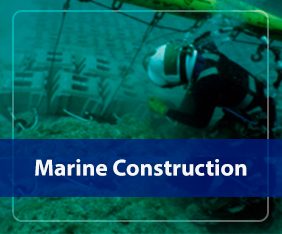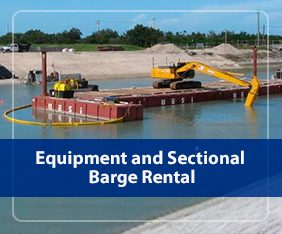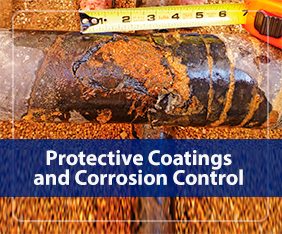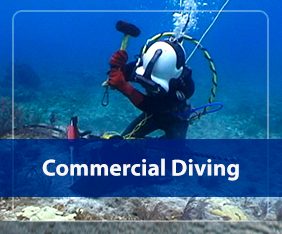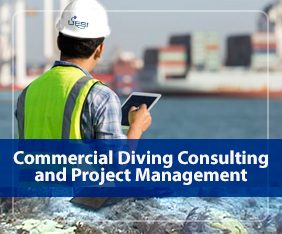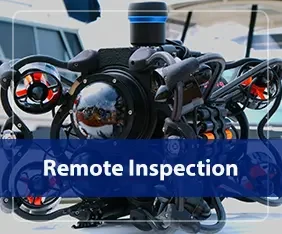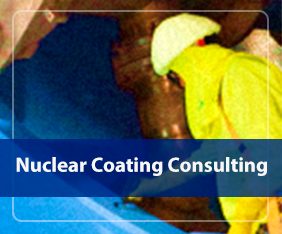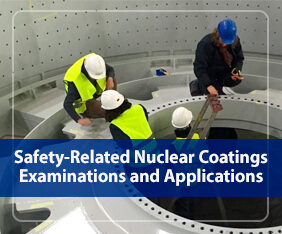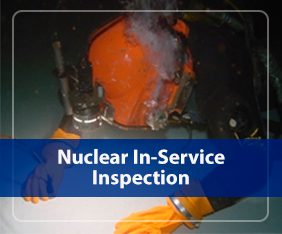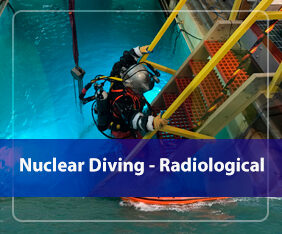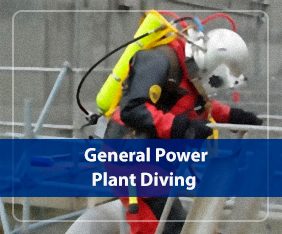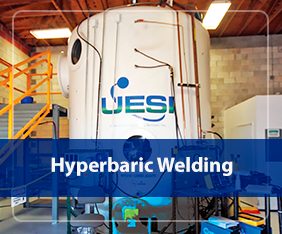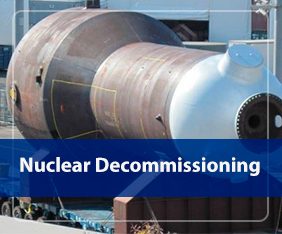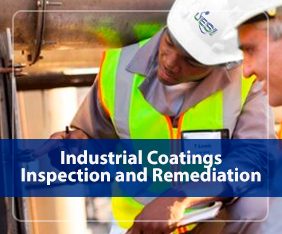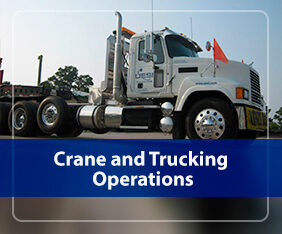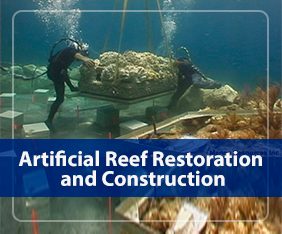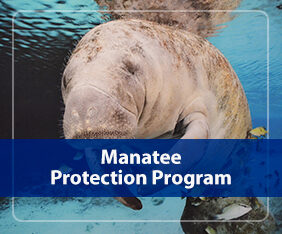Frequently Asked Questions
What services do commercial diving contractors offer?
Most offer general services such as underwater inspection, maintenance, and repair. These services may include things like underwater nondestructive testing, welding, and concrete repair. Some specialize in services provided to certain industries. The nuclear power industry, for example, requires specific qualifications and skill-sets that not all diving contractors possess.
What do commercial diving services cost?
Diving contractors typically provide standard rate schedules that cover labor, equipment, and expenses. Rates, however, don’t tell the full story. To develop a true cost, a diving contractor needs to know the work scope, schedule, location of the work, and the deliverables. This sort of information should be provided in a detailed specification. Without the necessary detail, it will be impossible for a contractor to provide a realistic quote. Failure to provide project details often results in change orders and, not infrequently, in disappointing project results.
How do I select a safe, qualified commercial diving contractor?
Start with the basics. A legitimate diving contractor should meet all the requirements found in the Association of Diving Contractors International (ADCI) Consensus Standards and the OSHA Commercial Diving Regulations. They should also provide insurance coverages that meet policy limits typically called for by customers employing commercial diving contractors. The bid process provides an excellent opportunity for additional screening. Carefully consider price. The lowest bidder may be financially attractive but his low price could indicate and unfamiliarity with the work or an effort to cut corners to keep costs low.
How are commercial divers trained and qualified?
Most diving contractors will only hire divers trained at one of the Association of Commercial Diving Educators (ACDE) member schools. Association of Commercial Diving Educators (ACDE) member schools. This ensures that all the basic training requirements have been met. While the training provided by these schools is first rate, it is just the beginning. Responsible contractors recognize this and usually invest heavily in continuing education and on-the-job training programs to ready these entry level divers for the real work to come. Firm’s hiring a commercial diving contractor should understand the unique nature of their work and reflect diver experience and qualification requirements in the RFP.
What kind of equipment do commercial divers use?
Commercial diving work is carried out almost exclusively using surface-supplied diving equipment. This means that breathing gas is supplied from the surface via an umbilical to a helmet worn by the diver. The gas supply is virtually unlimited and additional back-up gas supplies can be made available in case of a failure of the primary supply. In addition, the diver’s umbilical supplying the breathing gas also provides hard-wire radio communication that allows the diver and the surface support crew to communicate. As the work becomes more complicated, so do the equipment requirements; video, specialized tools, and environmental controls to name a few.
How many divers do I need?
The absolute minimum is a three person team. This provides a dive supervisor/radio operator, diver, and tender/backup diver. A three person team is only suitable for very simple jobs in shallow water and even then it is marginal. Most commercial diving contractors consider a four person team necessary even under the most benign conditions as it permits a dedicated supervisor and backup diver in addition to the diver and tender. As the work becomes more complicated and/or the environment more challenging, dive team size increases. For example, a penetration dive in a 500 foot pipe where the entrance is fifty feet below the surface and with a ninety degree bend at the midpoint would require a six person team consisting of dedicated dive supervisor, dedicated radio operator, surface tender, in-water tender at the entrance, in water tender at the bend, diver, and safety diver. A smaller team might be able to carry out the work under ideal circumstances, but if things get complicated, even six might not be enough.
This all sounds a bit confusing. How can I be sure I’m getting a safe contractor as well as the best value?
A legitimate professional commercial diving contractor should be willing to discuss the needs of a specific project upfront. In fact, most contractors welcome this. Doing so helps to ensure that the customer understands the needs of the job and gets a safe company at a competitive price.
Should the contract be fixed price or T&M?
The unique nature of an underwater project can make contracting difficult. If the scope and specification are well defined, fixed price can simplify the contract management process. Otherwise, a T&M contract with a not to exceed amount may make more sense. Many diving contractors are willing to work with customers to assist in developing the type of detailed scope of work necessary to issue an effective request for quote.
Can effective underwater inspections be performed by divers?
Suitably qualified diver inspectors can perform detailed inspections employing a variety of NDE methods including visual, video, sonar, and ultrasonic as well as various types of destructive testing. To effectively inspect, divers must be qualified in accordance with applicable codes and standards. For example, the inspection of safety related components at a nuclear power plant would require certification to American Society of Mechanical Engineers (ASME) codes. Coating and corrosion inspection is typically performed in accordance with ASTM D-33 Standards. The American Concrete Institute (ACI) provides guidelines for inspecting concrete.
How can I ensure I’ll get the inspection results I need?
The customer should determine the inspection objectives before planning an underwater inspection. With clearly defined objectives in place, a qualified diving contractor can assist in developing an effective inspection plan. In fact, engaging the diving contractor during the planning process can help to ensure the success of the inspection. Project planning and execution is a collaborative effort. An experienced contractor can offer insights based on experience that lend a practical approach to the inspection effort.
Is underwater welding a viable option?
Wet welding is a proven process. A knowledgeable diving contractor will develop a Welding Procedure Specification (WPS) and document underwater welder qualifications using a Procedure Qualification Record (PQR). The welding process is usually developed in accordance with American Society of Mechanical Engineers (ASME) or American Welding Society (AWS) codes. Underwater welding can be performed on both stainless and carbon steel. Underwater welding is often used to perform repairs or support new construction.
Is water temperature a problem for divers?
Divers, like others working in extreme temperatures, must dress for the conditions. However, the range of extremes in diving is a bit narrower than for other outdoor conditions. Water is a very good thermal conductor. A diver immersed in water will lose heat 24 times faster than in air. This means that extended immersion, even in relatively warm water up to 80 degrees Fahrenheit, can lead to hypothermia without some form of thermal protection. A wetsuit will provide sufficient insulation in water temperatures ranging from about 60 to 80 degrees F. Below that, a dry suit is required for exposures greater than about 30 minutes and for longer exposures in water temperatures below 50 degrees F, hot water suits are typically used.
Warm water presents its own set of problems. A diver working hard in water temperatures above 80 degrees F can become overheated. At water temperatures above 85 degrees F, the diver’s condition must be carefully monitored. The onset of heat exhaustion and even heat stroke can occur rapidly and without much warning. Once the water temperature reaches 90 degrees F, some form of active cooling is usually required. This can be in the form of ice vests worn under the dive suit or a cool suit system that circulates chilled water over the diver’s body through a network of small tubes. Cool suits permit dives in water exceeding 100 degrees F, but stay times will be limited. Diving in hot, or even warm water, can be tricky. Individual tolerances to elevated temperatures vary significantly and a diver’s condition can deteriorate rapidly – especially at temperatures above 90 degrees.
Warm water presents its own set of problems. A diver working hard in water temperatures above 80 degrees F can become overheated. At water temperatures above 85 degrees F, the diver’s condition must be carefully monitored. The onset of heat exhaustion and even heat stroke can occur rapidly and without much warning. Once the water temperature reaches 90 degrees F, some form of active cooling is usually required. This can be in the form of ice vests worn under the dive suit or a cool suit system that circulates chilled water over the diver’s body through a network of small tubes. Cool suits permit dives in water exceeding 100 degrees F, but stay times will be limited. Diving in hot, or even warm water, can be tricky. Individual tolerances to elevated temperatures vary significantly and a diver’s condition can deteriorate rapidly – especially at temperatures above 90 degrees.
Can a diver work in contaminated water?
Divers can work safely in chemically, biologically, or radiologically contaminated water as long and they wear the proper protective equipment. This generally consists of a dive helmet mated to a drysuit so that the diver is completely encapsulated and isolated from contact with the water. A positive pressure is maintained inside the suit and helmet to aid in preventing water intrusion. Following the dive, the diver must be carefully decontaminated prior to removing his equipment to prevent direct skin contamination.
But what about radiological contamination? Can radiation penetrate the dive suit?
Gama rays can easily penetrate most materials, but water is one of the most effective radiation shields. That’s why it is used to shield the radiation produced by nuclear fission. A diver can work in the spent fuel pool and even in the reactor vessel within ten feet of nuclear fuel rods without suffering any ill effects. A person that close to nuclear fuel in air would receive a fatal dose within a matter of minutes.


